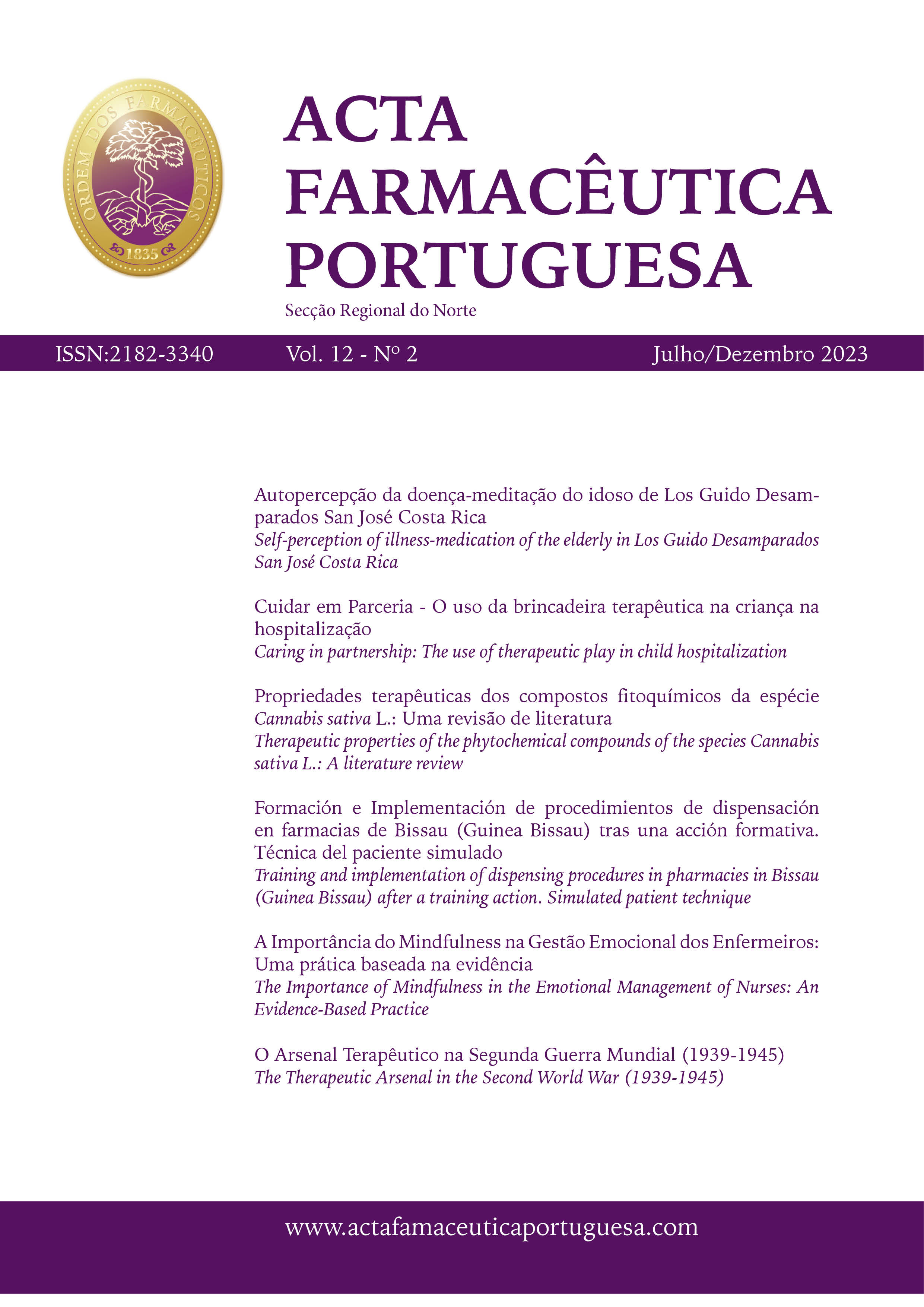Training and implementation of dispensing procedures in pharmacies in Bissau (Guinea Bissau) after a training action. Simulated patient technique
Abstract
Objective: Evaluate the results of a training program and implementation of pharmaceutical dispensing procedures with pharmacists and pharmacy technicians in the region of Bissau (Guinea Bissau), using the simulated patient technique and their satisfaction with the program.
Method: Design: Quasi-experimental study of formative intervention. May-June 2022. Subjects: drug professionals practicing in pharmacies in the Region of Bissau. Intervention: Three sessions of four hours using methodology of Forum of Pharmaceutical Care in Community Pharmacy. Evaluation: Pre/post knowledge questionnaire in each session. 10 questions (4 answers, 1 correct). Satisfaction questionnaire. Implementation: Simulated patient technique. Pharmacies with professionals enrolled in the course (Intervention group) and pharmacies close to one of the intervention group, without registered professionals (Control Group) were visited the week before the course and during the month following its completion. Variables: Age (years), sex (Male/female); workplace (hospital/private/other centers/unemployed). Knowledge: m±SD score and n (%) of valid answers to the questionnaire items. Use of the dispensing protocol: degree of compliance with this protocol, m±SD score and n (%) valid answers.
Results: 54 professionals, 47 (87.0%) completed the questionnaires. 24 (51.1%) men. Age 33.3±7.1 years. 17 (36.2%) worked in hospital, 13 (27.6%) in private pharmacy, 4 (8.8%) in other centers, 13 (27.6%) did not work. The knowledge questionnaire score increased in all three sessions: 4.1±2.0 to 6.0±1.8, from 3.2±1.6 to 5.8±1.6 from 2.4±1.3 to 6.1±2.3, p<0.0001. Total correct answers: Pre 552 (31.0%) vs Post 1070 (64.4%), p<0.001. Satisfaction: 3.4±0.6 out of 4, equivalent to 85% satisfaction. Implementation: Intervention group 2.1±2.2 vs control group 0.5±2.0, p=0.0564.
Conclusions: Initial knowledge was low, and increased very significantly after the three sessions of the course. The implementation of the protocol was reduced, but greater by the trained professionals. The satisfaction of the students was high.
Keywords: cooperation, education, training, dispensing service, satisfaction.


